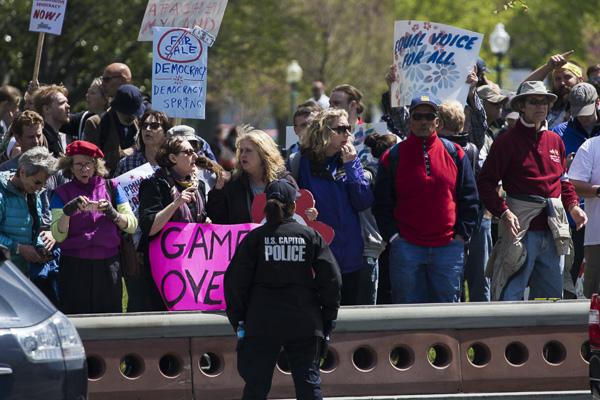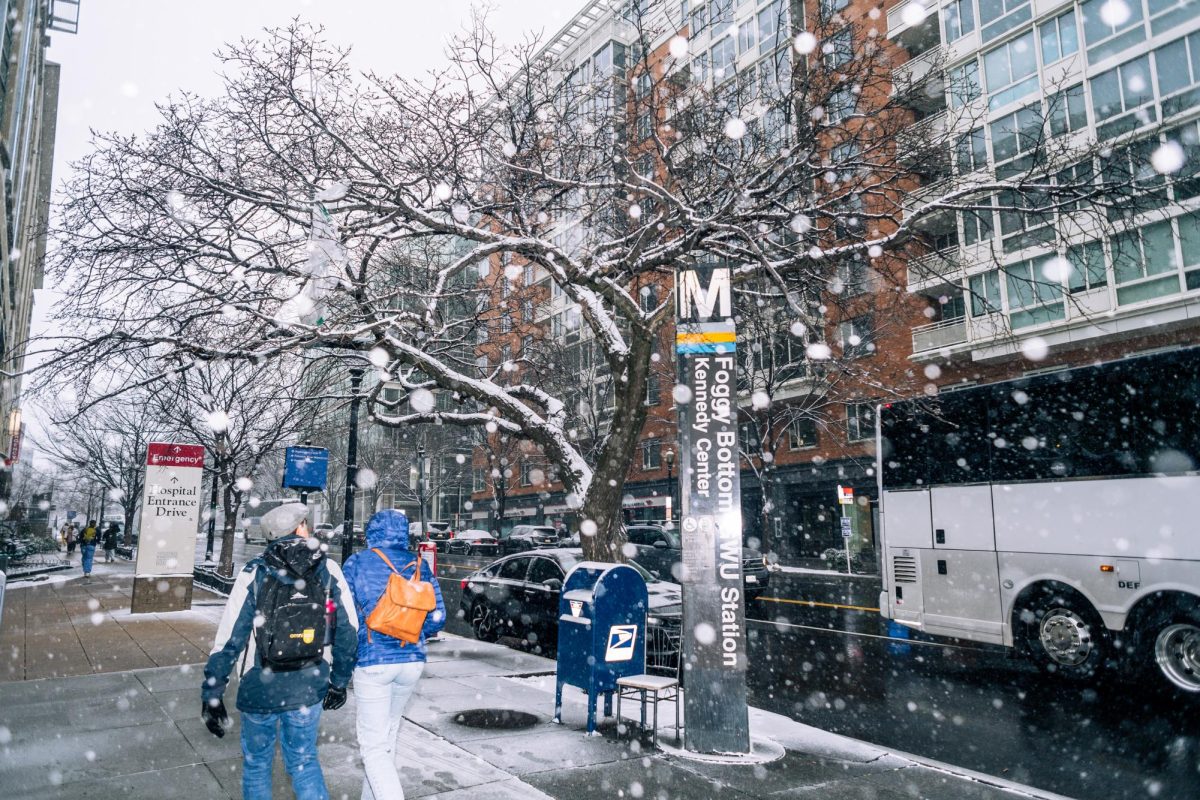Updated: Nov. 2, 2016 at 11:53 a.m.
At least three GW students were arrested last weekend on Capitol Hill during the weeklong “Democracy Spring” protest.
Logan Malik, Jacob Anderson-Little and Frank Fritz were charged Saturday with crowding, obstructing or incommoding after a sit-in on the Capitol steps to protest the influence of money in the political system, particularly its impacts on climate change, the students confirmed.
Saturday’s protest was part of a week of demonstrations at the Capitol against government corruption, especially the impact of corporate money and lobbying in elections and government actions. The mass protest began as a 10-day march from Philadelphia to D.C.
The U.S. Capitol Police said they arrested about 1,240 people since the protests began on April 11, according to a release on Monday – a record number of arrests for the Capitol.
Malik said he went to the protest knowing that he would likely be arrested, but that did not dissuade him. He said choosing to get arrested sent a stronger message than merely participating in the protest.
“It’s important to me,” Malik said. “This is something that I’m going to clearly state my objection to. I stayed on the steps of the Capitol and continued to voice my opinion. These are real issues and they disrupt our democracy and so being arrested for this is an indication for that.”
Democracy Spring organizers contacted GW Students for Bernie, a campus organization supporting Bernie Sanders’ presidential campaign, in the months leading up to the protest, Malik, the group’s director, said. He said seven people participated in the march and three risked arrest to enter the restricted area.
University spokeswoman Maralee Csellar said in an email that the University did not have any information on the students’ arrests.
Malik and Anderson-Little said the arrested protesters were taken to a makeshift processing center at the side of the Capitol building, where their mugshots were taken and were then barricaded in outdoor “cells.” Malik was released after a few hours, he said.
“The idea of arrest is very big and a few of my friends looked at me like ‘Woah, you’re crazy,’” he said. “But it was very low-key. I knew what to expect and I felt pretty safe.”
Anderson-Little was charged with a civil citation and was ordered to pay a $50 fine within two weeks.
Anderson-Little, who is also the incoming vice president of political affairs for the GW College Democrats, said he wasn’t sure if he would choose to get arrested, but decided to after thinking of his grandfather who he said was arrested in a civil rights march in Georgia in the 1960’s.
“There were a lot of different emotions,” he said. “The sort of weight of the issues and the background of my family gave me a very emotional experience that led me to sit on the stairs and risk arrest.”
Fritz, an organizer for Fossil Free GW, said he attended the climate protest as a “concerned citizen.”
“The protest was a powerful demonstration of the frustration of working people who feel their government does not serve them. It was an amazing experience to march with hundreds of people for fair elections and justice on climate change,” he said.
Just hours before they spoke on campus Monday night, Ben Cohen and Jerry Greenfield, co-founders of the iconic Ben & Jerry’s ice cream, were also arrested, becoming some of the most high-profile Democracy Spring protestors.







